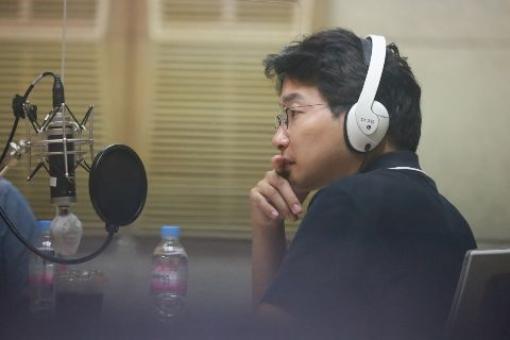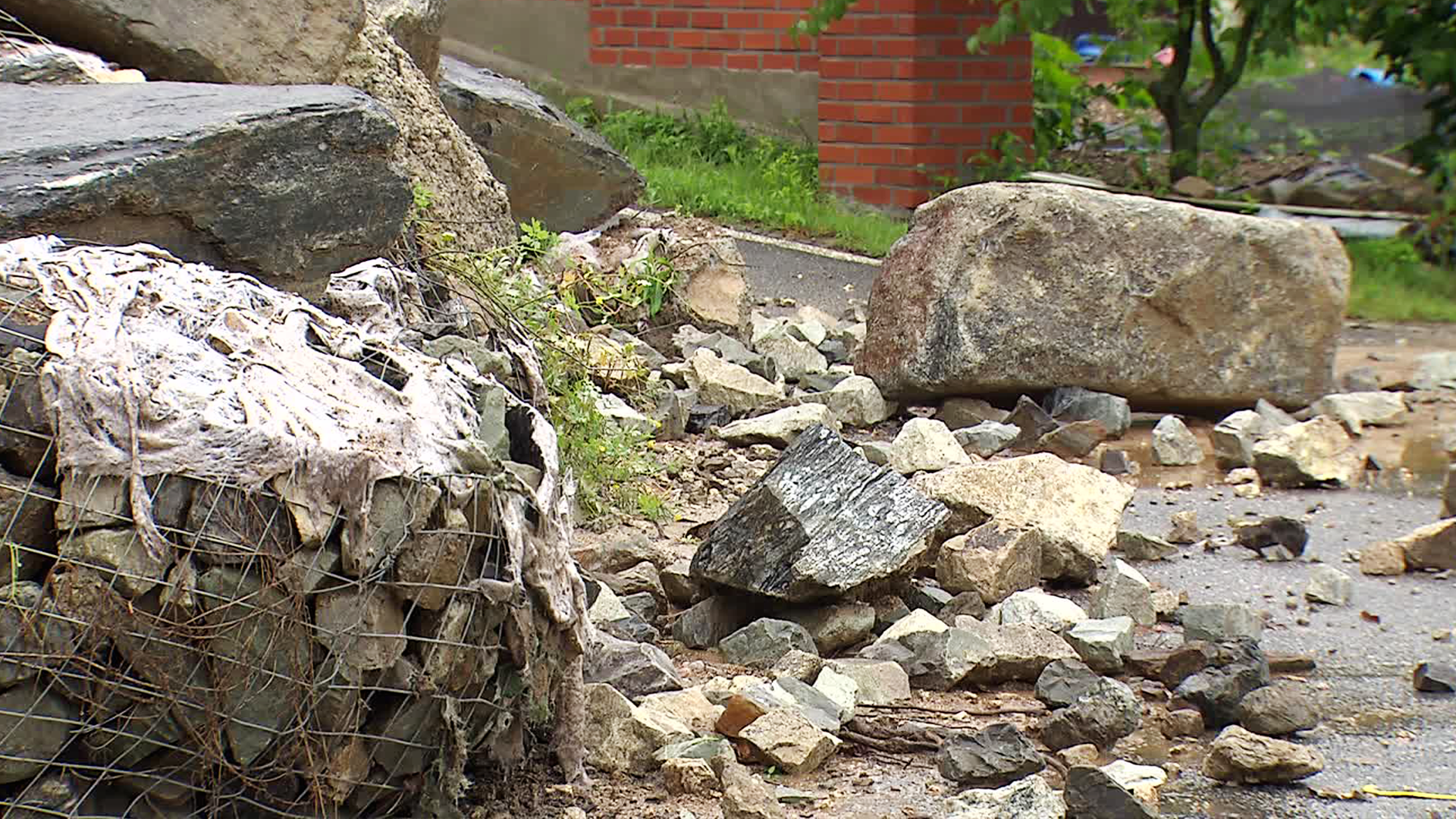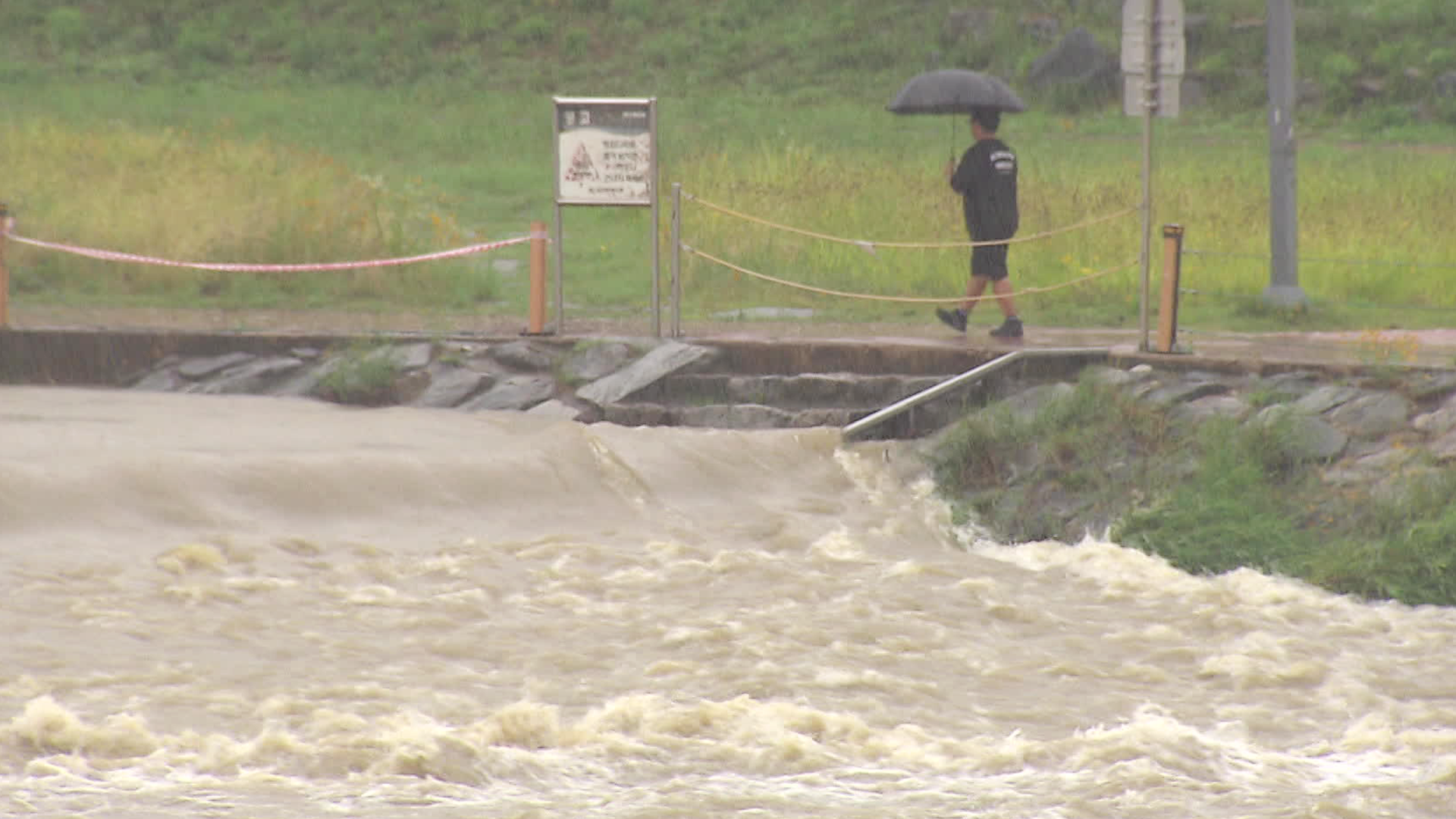[Anchor]
Anyone who has experienced this disease at least once will know how great the pain is.
Although there are individual differences, it is a condition that accompanies intense pain comparable to the pain of childbirth, and that is urinary stones.
It is said that this condition is concentrated mainly in the summer, particularly in July and August. Reporter Jeong Yeon-wook reports on why this is the case and how it can be prevented.
[Report]
Jeong Eun-hee is about to undergo surgery for urinary stones.
A CT scan of her abdomen revealed a 4cm stone lodged in her kidney, which filters waste from the body.
Stones can form not only in the kidneys but also in the ureters and bladder, where urine moves and collects.
All of these are classified as urinary stones.
Most patients complain of severe pain.
[Cho Hyuk-jin/Professor of Urology at Catholic University of Korea, Seoul St. Mary's Hospital: "When the passage is blocked, it becomes difficult for urine to be expelled into the bladder, and that urine accumulates in the kidney. When the pressure in the kidney increases, it stimulates the capsule surrounding the kidney, and this stimulation causes extreme pain."]
The main reason for the formation of stones in the body is a lack of hydration.
Jeong also had a habit of drinking little water.
[Jeong Eun-hee/Urinary Stone Patient: "Due to my job, I couldn't drink much water. I think I didn't drink much because I was a bit hesitant about going to the bathroom frequently."]
An analysis of urinary stone patients over the past five years showed that the highest number of patients occurs in July and August each year.
This is because if you do not drink enough water during the summer when you sweat a lot, your body becomes dehydrated.
[Cho Hyuk-jin/Professor of Urology at Catholic University of Korea, Seoul St. Mary's Hospital: "When water intake is insufficient, urine becomes concentrated, and components like calcium, oxalate, and uric acid that form urinary stones create a more favorable environment for stone formation, leading to an increase in stone occurrence."]
Excessive intake of certain nutrients can also lead to urinary stones.
Woo Kwang-hyuk, who usually took various supplements, underwent surgery for urinary stones last May.
[Woo Kwang-hyuk/Urinary Stone Patient: "I was taking a lot of things that are good for the body. I took a lot and took health supplements and vitamin C, but later, according to the doctor, it turned out that it was just right for stone formation."]
Nutritional components like protein, calcium, and magnesium do not get fully absorbed in the body and are excreted, leading to stone formation.
[Cho Sung-yong/Professor of Urology at Seoul National University Hospital: "If you consume too much high-protein food, it causes a lot of calcium, oxalate, and uric acid, especially purines that create uric acid, to be excreted in the urine, and since there is a limit to absorption, stone crystals form more quickly."]
Specialists warn that delaying treatment for urinary stones, even if the pain is not severe, can lead to urinary infections and kidney damage.
This is KBS News, Jeong Yeon-wook.
Anyone who has experienced this disease at least once will know how great the pain is.
Although there are individual differences, it is a condition that accompanies intense pain comparable to the pain of childbirth, and that is urinary stones.
It is said that this condition is concentrated mainly in the summer, particularly in July and August. Reporter Jeong Yeon-wook reports on why this is the case and how it can be prevented.
[Report]
Jeong Eun-hee is about to undergo surgery for urinary stones.
A CT scan of her abdomen revealed a 4cm stone lodged in her kidney, which filters waste from the body.
Stones can form not only in the kidneys but also in the ureters and bladder, where urine moves and collects.
All of these are classified as urinary stones.
Most patients complain of severe pain.
[Cho Hyuk-jin/Professor of Urology at Catholic University of Korea, Seoul St. Mary's Hospital: "When the passage is blocked, it becomes difficult for urine to be expelled into the bladder, and that urine accumulates in the kidney. When the pressure in the kidney increases, it stimulates the capsule surrounding the kidney, and this stimulation causes extreme pain."]
The main reason for the formation of stones in the body is a lack of hydration.
Jeong also had a habit of drinking little water.
[Jeong Eun-hee/Urinary Stone Patient: "Due to my job, I couldn't drink much water. I think I didn't drink much because I was a bit hesitant about going to the bathroom frequently."]
An analysis of urinary stone patients over the past five years showed that the highest number of patients occurs in July and August each year.
This is because if you do not drink enough water during the summer when you sweat a lot, your body becomes dehydrated.
[Cho Hyuk-jin/Professor of Urology at Catholic University of Korea, Seoul St. Mary's Hospital: "When water intake is insufficient, urine becomes concentrated, and components like calcium, oxalate, and uric acid that form urinary stones create a more favorable environment for stone formation, leading to an increase in stone occurrence."]
Excessive intake of certain nutrients can also lead to urinary stones.
Woo Kwang-hyuk, who usually took various supplements, underwent surgery for urinary stones last May.
[Woo Kwang-hyuk/Urinary Stone Patient: "I was taking a lot of things that are good for the body. I took a lot and took health supplements and vitamin C, but later, according to the doctor, it turned out that it was just right for stone formation."]
Nutritional components like protein, calcium, and magnesium do not get fully absorbed in the body and are excreted, leading to stone formation.
[Cho Sung-yong/Professor of Urology at Seoul National University Hospital: "If you consume too much high-protein food, it causes a lot of calcium, oxalate, and uric acid, especially purines that create uric acid, to be excreted in the urine, and since there is a limit to absorption, stone crystals form more quickly."]
Specialists warn that delaying treatment for urinary stones, even if the pain is not severe, can lead to urinary infections and kidney damage.
This is KBS News, Jeong Yeon-wook.
■ 제보하기
▷ 카카오톡 : 'KBS제보' 검색, 채널 추가
▷ 전화 : 02-781-1234, 4444
▷ 이메일 : kbs1234@kbs.co.kr
▷ 유튜브, 네이버, 카카오에서도 KBS뉴스를 구독해주세요!
- Summer surge in kidney stones
-
- 입력 2025-06-21 23:32:43

[Anchor]
Anyone who has experienced this disease at least once will know how great the pain is.
Although there are individual differences, it is a condition that accompanies intense pain comparable to the pain of childbirth, and that is urinary stones.
It is said that this condition is concentrated mainly in the summer, particularly in July and August. Reporter Jeong Yeon-wook reports on why this is the case and how it can be prevented.
[Report]
Jeong Eun-hee is about to undergo surgery for urinary stones.
A CT scan of her abdomen revealed a 4cm stone lodged in her kidney, which filters waste from the body.
Stones can form not only in the kidneys but also in the ureters and bladder, where urine moves and collects.
All of these are classified as urinary stones.
Most patients complain of severe pain.
[Cho Hyuk-jin/Professor of Urology at Catholic University of Korea, Seoul St. Mary's Hospital: "When the passage is blocked, it becomes difficult for urine to be expelled into the bladder, and that urine accumulates in the kidney. When the pressure in the kidney increases, it stimulates the capsule surrounding the kidney, and this stimulation causes extreme pain."]
The main reason for the formation of stones in the body is a lack of hydration.
Jeong also had a habit of drinking little water.
[Jeong Eun-hee/Urinary Stone Patient: "Due to my job, I couldn't drink much water. I think I didn't drink much because I was a bit hesitant about going to the bathroom frequently."]
An analysis of urinary stone patients over the past five years showed that the highest number of patients occurs in July and August each year.
This is because if you do not drink enough water during the summer when you sweat a lot, your body becomes dehydrated.
[Cho Hyuk-jin/Professor of Urology at Catholic University of Korea, Seoul St. Mary's Hospital: "When water intake is insufficient, urine becomes concentrated, and components like calcium, oxalate, and uric acid that form urinary stones create a more favorable environment for stone formation, leading to an increase in stone occurrence."]
Excessive intake of certain nutrients can also lead to urinary stones.
Woo Kwang-hyuk, who usually took various supplements, underwent surgery for urinary stones last May.
[Woo Kwang-hyuk/Urinary Stone Patient: "I was taking a lot of things that are good for the body. I took a lot and took health supplements and vitamin C, but later, according to the doctor, it turned out that it was just right for stone formation."]
Nutritional components like protein, calcium, and magnesium do not get fully absorbed in the body and are excreted, leading to stone formation.
[Cho Sung-yong/Professor of Urology at Seoul National University Hospital: "If you consume too much high-protein food, it causes a lot of calcium, oxalate, and uric acid, especially purines that create uric acid, to be excreted in the urine, and since there is a limit to absorption, stone crystals form more quickly."]
Specialists warn that delaying treatment for urinary stones, even if the pain is not severe, can lead to urinary infections and kidney damage.
This is KBS News, Jeong Yeon-wook.
Anyone who has experienced this disease at least once will know how great the pain is.
Although there are individual differences, it is a condition that accompanies intense pain comparable to the pain of childbirth, and that is urinary stones.
It is said that this condition is concentrated mainly in the summer, particularly in July and August. Reporter Jeong Yeon-wook reports on why this is the case and how it can be prevented.
[Report]
Jeong Eun-hee is about to undergo surgery for urinary stones.
A CT scan of her abdomen revealed a 4cm stone lodged in her kidney, which filters waste from the body.
Stones can form not only in the kidneys but also in the ureters and bladder, where urine moves and collects.
All of these are classified as urinary stones.
Most patients complain of severe pain.
[Cho Hyuk-jin/Professor of Urology at Catholic University of Korea, Seoul St. Mary's Hospital: "When the passage is blocked, it becomes difficult for urine to be expelled into the bladder, and that urine accumulates in the kidney. When the pressure in the kidney increases, it stimulates the capsule surrounding the kidney, and this stimulation causes extreme pain."]
The main reason for the formation of stones in the body is a lack of hydration.
Jeong also had a habit of drinking little water.
[Jeong Eun-hee/Urinary Stone Patient: "Due to my job, I couldn't drink much water. I think I didn't drink much because I was a bit hesitant about going to the bathroom frequently."]
An analysis of urinary stone patients over the past five years showed that the highest number of patients occurs in July and August each year.
This is because if you do not drink enough water during the summer when you sweat a lot, your body becomes dehydrated.
[Cho Hyuk-jin/Professor of Urology at Catholic University of Korea, Seoul St. Mary's Hospital: "When water intake is insufficient, urine becomes concentrated, and components like calcium, oxalate, and uric acid that form urinary stones create a more favorable environment for stone formation, leading to an increase in stone occurrence."]
Excessive intake of certain nutrients can also lead to urinary stones.
Woo Kwang-hyuk, who usually took various supplements, underwent surgery for urinary stones last May.
[Woo Kwang-hyuk/Urinary Stone Patient: "I was taking a lot of things that are good for the body. I took a lot and took health supplements and vitamin C, but later, according to the doctor, it turned out that it was just right for stone formation."]
Nutritional components like protein, calcium, and magnesium do not get fully absorbed in the body and are excreted, leading to stone formation.
[Cho Sung-yong/Professor of Urology at Seoul National University Hospital: "If you consume too much high-protein food, it causes a lot of calcium, oxalate, and uric acid, especially purines that create uric acid, to be excreted in the urine, and since there is a limit to absorption, stone crystals form more quickly."]
Specialists warn that delaying treatment for urinary stones, even if the pain is not severe, can lead to urinary infections and kidney damage.
This is KBS News, Jeong Yeon-wook.
-
-

정연욱 기자 donkey@kbs.co.kr
정연욱 기자의 기사 모음
-
이 기사가 좋으셨다면
-
좋아요
0
-
응원해요
0
-
후속 원해요
0















이 기사에 대한 의견을 남겨주세요.